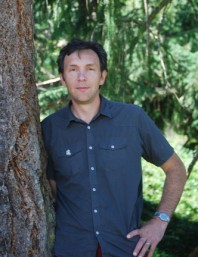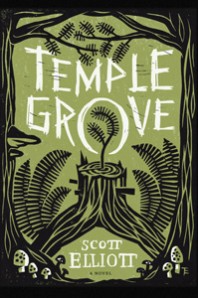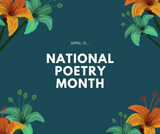 The desire to write about a place begins to register in the bones long before the writing happens. A subconscious need to write about the Olympic Peninsula began to grow in me, arose from experiences of the place, for some time before I ever tried to write about it: The immense silence of the old growth forest along the Sol Duc. The roar and hiss of Pacific surf at Shi Shi and Ruby Beaches. The sweep of the wind down the Elwha River valley. Stories, enlivened by wonderful exaggeration, my classmates at Fairview and Franklin Elementary Schools in Port Angeles told of loggers tussling with Hells Angels. The feel of a winter storm slamming Hobuck beach. The sight of a shimmering salmon at the end of a line. My relatives’ stories of the Peninsula’s earlier days. A conversation with a boy of fourteen, not attached to any adults, who made a habit of rambling alone and making friends of fellow hikers in the Olympic National Park. Rain that falls and falls to nod thousands of conifer needles.
The desire to write about a place begins to register in the bones long before the writing happens. A subconscious need to write about the Olympic Peninsula began to grow in me, arose from experiences of the place, for some time before I ever tried to write about it: The immense silence of the old growth forest along the Sol Duc. The roar and hiss of Pacific surf at Shi Shi and Ruby Beaches. The sweep of the wind down the Elwha River valley. Stories, enlivened by wonderful exaggeration, my classmates at Fairview and Franklin Elementary Schools in Port Angeles told of loggers tussling with Hells Angels. The feel of a winter storm slamming Hobuck beach. The sight of a shimmering salmon at the end of a line. My relatives’ stories of the Peninsula’s earlier days. A conversation with a boy of fourteen, not attached to any adults, who made a habit of rambling alone and making friends of fellow hikers in the Olympic National Park. Rain that falls and falls to nod thousands of conifer needles.

“Like Alan Heathcock and Benjamin Percy, Scott Elliott writes from that place where the old myths and the new stories collide. In Temple Grove, he reminds us of what it means to be lost to everyone and everything we have ever loved…and to be found again. It is a story of longing, cruelty, forgiveness, and redemption, shot through with intimate descriptions of a land on the cusp of ruin that will break your heart with their beauty.” —Kim Barnes
In his poem “A Map of the Peninsula,” Richard Hugo writes about the difficulty of trying to capture the Peninsula, this land that remained unexplored till late by white settlers of European descent (tribes like the Makah have been there for a thousand and more years) and seems to want to stay wild, in any kind of coherent symbolic order. In that poem, he writes, “Soak the map / In rain and when this cheap dye runs / Only glacier and river names remain.”
In writing Temple Grove, impressions I gathered long before I knew I was gathering them and many impressions I gathered more knowingly once I started to write have all come together in a river of words, a novel with nods to the region’s natural and mythic pasts, its current conflicts and hopeful future. The novel was an opportunity to spend more time in the beloved place without leaving my writing desk as I tackled the daunting task of trying to find the words that would enable me to stay true to the place while also telling a good story equally as true to the people who call it home.
Scott Elliott grew up in Louisville, Kentucky and on Washington State’s Olympic Peninsula. Scott’s first novel Coiled in the Heart was a Booksense 76 Selection and was featured on NPR’s Morning Edition with Bob Edwards. It was also chosen for the 2005 American Library of Congress sponsored One-Community-One-Campus-One-Book celebration in Bowling Green, Kentucky. His collection of short stories Return Arrangements was a 2009 finalist for the Flannery O’Connor Award for short fiction.
In 2011 he was awarded the G. Thomas Edwards Award for Excellence in Teaching and Scholarship at Whitman College, where he is Associate Professor of Creative Writing and English. In 2012 he founded the Walla Walla Whitman Imaginative Writing Partnership, which places talented Whitman undergraduate writers in public schools. He lives in Walla Walla, Washington with his family.



People in Pacific Northwest will relate closely to the descriptions of the Olympic Peninsula. It is a must read for teenagers.